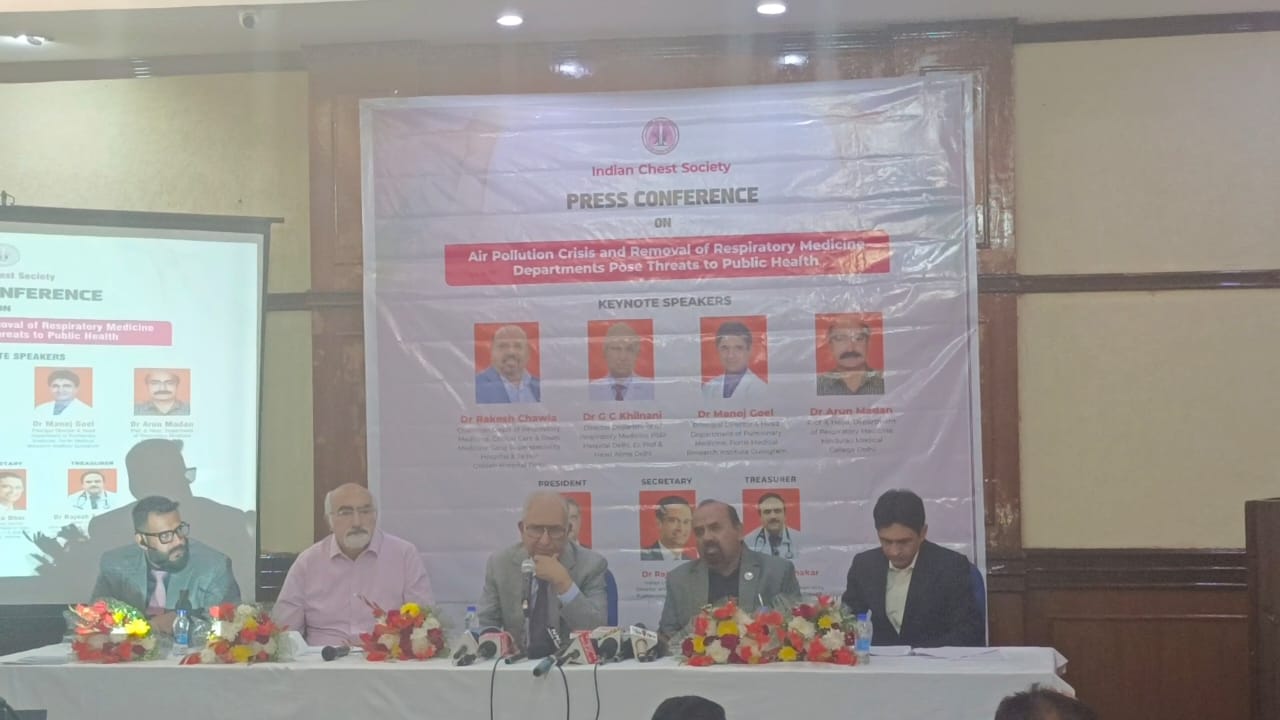
Choked by Air Pollution: Experts Sound Alarm on India's Health Crisis
India is battling a silent killer—air pollution. With Air Quality Index (AQI) levels breaching the 1,000 mark in some regions, the nation is witnessing a public health emergency that’s hitting the youngest and oldest among us the hardest. From surging cases of asthma to severe cardiovascular issues, the toxic air is taking a toll on millions, and experts are sounding the alarm.
Delhi Steps Up as Pollution Suffocates the City
Delhi, one of the world’s most polluted cities, is on high alert. The state government has ordered hospitals to form dedicated teams to handle pollution-related respiratory illnesses. Daily updates on outpatient (OPD) and inpatient (IPD) cases of respiratory ailments are now mandatory, ensuring any unusual spikes are flagged immediately.
While these efforts are crucial, Dr. Arun Madan, Head of Respiratory Medicine at Hindurao Medical College, warns of a troubling twist. “For decades, medical college hospitals have been the backbone of advanced respiratory care and training. But the decision to remove Respiratory Medicine departments from MBBS programs could cripple India’s ability to combat respiratory health challenges,” he said.
This change comes as part of the National Medical Commission’s (NMC) UGMSR 2023 Guidelines, which have left many in the medical community deeply concerned.
Pollution’s Health Toll: The Numbers Don’t Lie
It’s not just a problem for Delhi—it’s a national crisis. Dr. G.C. Khilnani, Chairman of the Indian Chest Society (North Zone), paints a grim picture: “More than 99% of India’s population is exposed to PM2.5 levels that exceed WHO safety limits. This leads to a surge in respiratory and cardiovascular diseases, with pollution-related symptoms accounting for over half of healthcare consultations.”
The POSEIDON study, published in The Lancet, supports this, showing how respiratory symptoms dominate India’s healthcare landscape. Dr. Khilnani believes it’s time for systemic change. “We need better healthcare infrastructure and urgent action to curb pollution. This isn’t just a medical issue—it’s a policy issue.”
Can Policy Save Lives?
Dr. Manoj Goel, Head of Pulmonary Medicine at Fortis Medical Research Institute, offers a ray of hope: cleaner air is within reach, but it requires bold moves. “From adopting clean energy to implementing smarter waste management practices, effective policies can save lives. Meeting even the first WHO air quality target could prevent 300,000 deaths annually,” he said.
But the fight isn’t just about cleaner air. It’s about ensuring people have access to the care they need. Experts like Dr. Rakesh Chawla, Vice President of the Indian Chest Society, say removing Respiratory Medicine departments is a step backward. “These departments are critical for managing complex conditions like tuberculosis, COPD, and pollution-related illnesses. Without them, we’re risking the health of millions and jeopardizing India’s TB elimination goals,” he cautioned.
The Indian Chest Society: Fighting for Breath
The Indian Chest Society isn’t taking this lying down. Known for championing respiratory health, the organization is calling on the government to act swiftly. From reinstating Respiratory Medicine in MBBS programs to launching awareness campaigns and enforcing stricter pollution control measures, the Society is pushing for a multi-pronged approach.
“We need coordinated efforts across sectors,” said Dr. Aditya Chawla of Saroj Super Specialty Hospital. “This crisis isn’t going away unless we tackle it with robust policies, clean energy adoption, and healthcare reforms. It’s about protecting the lives of millions today and securing the future for the next generation.”
The Clock is Ticking
India’s air pollution crisis isn’t just an environmental disaster—it’s a public health emergency. The question is no longer about whether to act, but how soon and how decisively. If we don’t, the air we breathe will continue to rob us of our health, one breath at a time.
It’s time to clear the air, literally and figuratively.